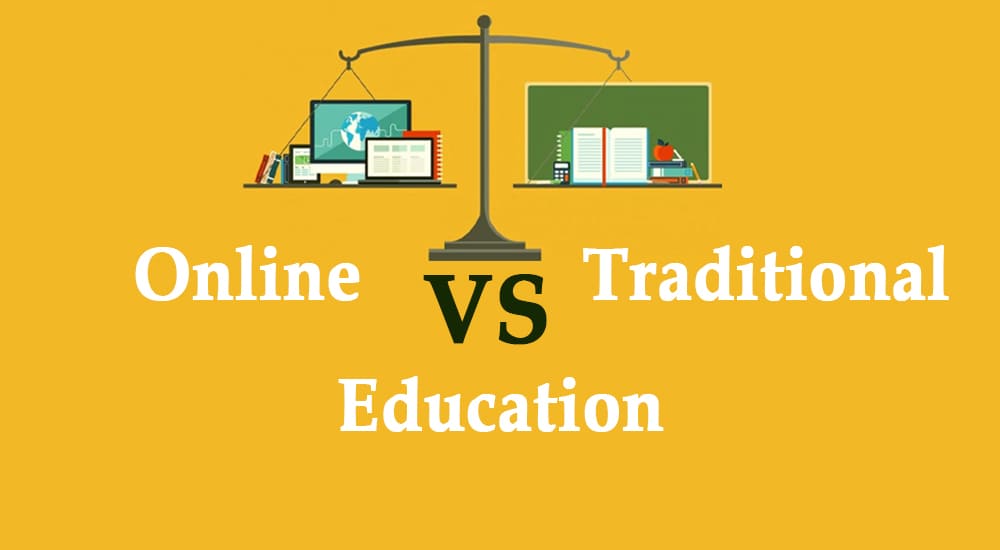
Online vs. Traditional Education: Which One Is Better?
Education has evolved significantly over the years, offering students multiple pathways to learning. The traditional classroom model, where students physically attend lectures and interact with instructors face-to-face, has long been the dominant approach. However, the rise of technology has paved the way for online education, which provides flexibility and accessibility to learners worldwide.
Both learning methods come with their own set of advantages and challenges, making it difficult to declare one as superior to the other. The choice ultimately depends on an individual’s lifestyle, career goals, and personal learning preferences. In this article, we will explore how online and traditional education compare in terms of structure, engagement, costs, career impact, and overall effectiveness.
Understanding Online Education
Online education is a modern learning method that allows students to access course materials, participate in discussions, and complete assignments remotely. With the internet serving as the primary learning environment, students can engage with instructors and peers through digital platforms, video lectures, and interactive assessments.
One of the most significant advantages of online education is its flexibility. Students can choose when and where to study, making it an excellent option for working professionals, parents, or individuals with busy schedules. Unlike traditional classroom settings, online courses often allow learners to progress at their own pace, reducing the pressure of keeping up with a set timetable.
Affordability is another key benefit. Many online programs cost significantly less than traditional degree programs, as they eliminate expenses related to housing, commuting, and campus facilities. Additionally, there are numerous free and low-cost courses available from reputable institutions, making education more accessible than ever before.
However, online learning also presents challenges. It requires a high level of self-discipline and motivation, as students must manage their own schedules and stay on top of coursework without direct supervision. The lack of physical interaction with instructors and classmates can make it harder to build relationships, which may affect networking opportunities and collaborative learning experiences.
Traditional Education: The Time-Tested Approach
Traditional education follows a structured model where students attend lectures, participate in group discussions, and engage in hands-on learning experiences. This method is deeply rooted in educational history and remains the preferred choice for many learners, particularly those pursuing careers that require practical training, such as medicine, engineering, or performing arts.
One of the greatest strengths of traditional education is the face-to-face interaction it provides. Being physically present in a classroom allows students to ask questions, receive immediate feedback, and engage in dynamic discussions. This environment fosters critical thinking, teamwork, and direct mentorship from instructors, which can be beneficial for academic growth.
Additionally, traditional universities often provide a rich campus experience that extends beyond academics. Students have access to libraries, laboratories, sports facilities, and extracurricular activities that contribute to personal and professional development. Networking is also a major advantage, as students can build relationships with professors, classmates, and industry professionals, leading to career opportunities after graduation.
Despite its many benefits, traditional education has some limitations. The fixed schedules and rigid structure may not be suitable for individuals who need a more flexible learning experience. The cost of tuition, accommodation, and transportation can also be a significant burden, making higher education less accessible to some students.
Which Learning Method is More Effective?
The effectiveness of online versus traditional education largely depends on the learner’s needs and goals. For students who thrive in a structured environment with direct engagement, traditional education may be the better option. The hands-on experience and in-person interactions it provides can be especially valuable in fields that require practical training.
On the other hand, online education is an excellent choice for individuals seeking flexibility and affordability. It enables learners to acquire new skills without disrupting their professional or personal commitments. Moreover, advancements in technology have made online learning more interactive, with virtual labs, discussion forums, and AI-driven tutoring systems improving the overall experience.
In recent years, hybrid learning models have gained popularity, combining elements of both online and traditional education. Many universities now offer blended courses, where students can attend some classes in person while completing others online. This approach provides the best of both worlds, allowing learners to benefit from the flexibility of digital learning while still enjoying face-to-face interactions when necessary.
Making the Right Choice
Deciding between online and traditional education requires careful consideration of several factors, including learning style, career aspirations, and financial situation. Those who need structure, hands-on experience, and networking opportunities may find traditional education more beneficial. Conversely, individuals who prioritize flexibility, cost-effectiveness, and self-paced learning may prefer online education.
Ultimately, the best learning method is the one that aligns with an individual’s personal and professional needs. As technology continues to reshape education, both online and traditional methods will continue to evolve, offering learners more choices and opportunities to pursue knowledge in ways that suit them best.









